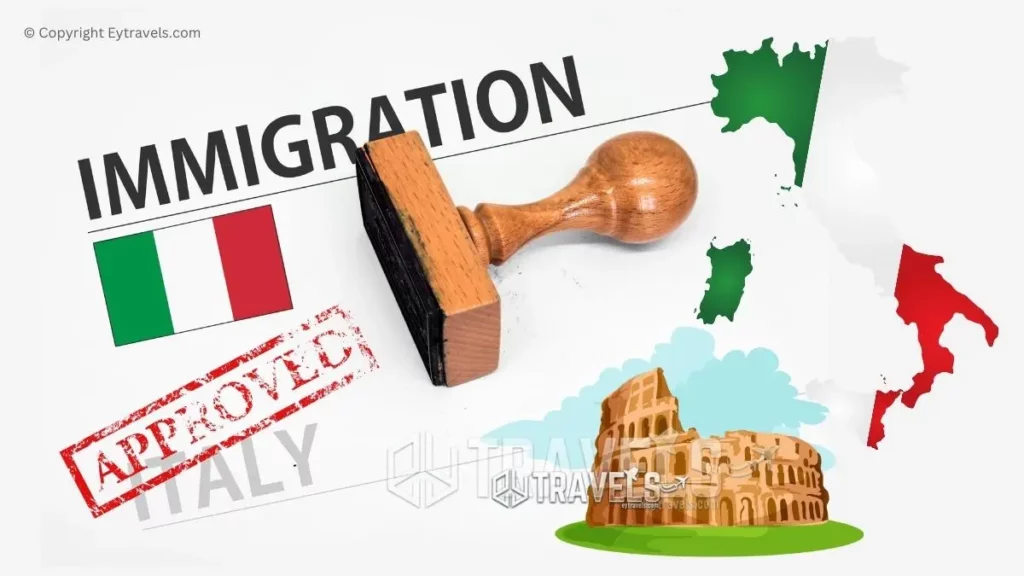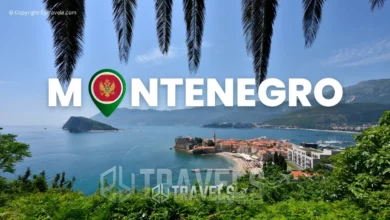Your Ultimate Guide on How to Immigrate to Italy
Picture yourself strolling along cobblestone streets lined with historic architecture, sipping a glass of Chianti at a charming café while basking in golden sunlight. Dreaming of a life under the Tuscan sun? Our ultimate guide on how to immigrate to Italy will make your dreams a reality.
Sounds like paradise? It certainly is! If Italy has always held a special place in your heart, and you've been contemplating how to make it your new home, look no further. This comprehensive guide will take you on an exhilarating journey through Italy's immigration process – from understanding visa requirements and residency permits to embracing the vibrant Italian culture and charm. Get ready for la dolce vita as we unravel the secrets of making Italy your forever destination.
Table Of Contents
- What is the process of obtaining a residence permit in Italy?
- What are the different types of visas available for those who want to immigrate to Italy?
- What is the process of obtaining Italian citizenship?
- What are the options for non-EU citizens to immigrate to Italy?
- What are the important aspects to consider when planning to immigrate to Italy?
- FAQs On How to Immigrate to Italy
- Q: What is the process of immigrating to Italy?
- Q: What is an Italian visa?
- Q: How do I apply for an Italian visa?
- Q: What is an Italian residence permit?
- Q: What are the requirements to apply for an Italian residence permit?
- Q: Can I work in Italy with an Italian residence permit?
- Q: How long can I stay in Italy with a Schengen visa?
- Q: Do Italians need a visa to enter Italy?
- Q: How many migrants are there in Italy?
- Q: Can I move to Italy without a visa?
What is the process of obtaining a residence permit in Italy?
Italy offers various types of residence permits for individuals who want to live and work in the country. Whether you are planning to study, work, or invest in Italy, there is a residence permit category that suits your needs.
Types of residence permits in Italy
There are several types of residence permits in Italy, including study permits, work permits, family reunification permits, and investor permits. Each permit type has its own requirements and application process.
Requirements to apply for a residence permit
The requirements to apply for a residence permit in Italy vary depending on the purpose of your stay. Generally, you will need to provide proof of financial stability, health insurance, and a valid passport. You may also need to demonstrate your knowledge of the Italian language.
How to apply for a residence permit in Italy
To apply for a residence permit in Italy, you will need to submit an application to the Italian authorities. The application process typically involves filling out forms, gathering supporting documents, and attending an interview. It is important to follow the instructions provided by the authorities and submit all the required documents.
What are the different types of visas available for those who want to immigrate to Italy?
If you want to immigrate to Italy, you will need to obtain a visa before you can enter the country. Italy offers various types of visas, depending on the purpose of your visit.
Italian visa categories

The Italian visa categories include tourist visas, student visas, work visas, and business visas. Each visa category has specific requirements and limitations.
Requirements and application process for Italian visas
The requirements for Italian visas vary depending on the type of visa you are applying for. Generally, you will need to provide proof of your purpose of visit, sufficient funds to support yourself during your stay, and a valid passport. The application process involves submitting the required documents to the Italian consulate or embassy in your home country.
How to extend or change your visa in Italy
If you need to extend your stay in Italy or change your visa status, you will need to follow the procedures set by the Italian government. It is important to be aware of the expiry date of your visa and apply for an extension or change of status before it expires.
What is the process of obtaining Italian citizenship?
Obtaining Italian citizenship can provide numerous benefits, including the right to live, work, and study in Italy without any restrictions.
Eligibility criteria for Italian citizenship
To be eligible for Italian citizenship, you will need to meet certain criteria, such as having Italian ancestry, being married to an Italian citizen, or having lived in Italy for a certain number of years. The eligibility criteria may vary depending on your circumstances.
Application process for Italian citizenship
The application process for Italian citizenship involves submitting an application to the Italian government, providing supporting documents, and attending an interview. It may take some time for the authorities to process your application, so it is important to be patient.
Dual citizenship and its benefits
Italian citizenship allows you to hold dual citizenship, which means you can maintain your original nationality while enjoying the benefits of being an Italian citizen. Dual citizenship can provide you with more options for travel, work, and study.
What are the options for non-EU citizens to immigrate to Italy?
Italy offers various options for non-EU citizens who want to immigrate to the country, whether for work, education, or investment purposes.
Work permits for non-EU citizens
Non-EU citizens who wish to work in Italy will need to obtain a work permit. The work permit application process involves securing a job offer from an Italian employer and meeting the requirements set by the Italian government. It is important to have a clear understanding of the labor market in Italy and the job prospects in your field.
Investor visa options for non-EU citizens
Non-EU citizens who want to invest in Italy can apply for an investor visa. This visa allows individuals to invest a certain amount of money in Italy and establish a business or make significant investments in the country.
Study and research opportunities for non-EU citizens
Italy is known for its prestigious universities and research institutions. Non-EU citizens who want to study or conduct research in Italy can apply for a student or research visa. The application process may require proof of acceptance from an Italian educational institution or research facility.
What are the important aspects to consider when planning to immigrate to Italy?
Immigrating to Italy requires careful planning and consideration of various aspects that can impact your experience and success in the country.
Understanding the Italian immigration system
Before immigrating to Italy, it is important to have a good understanding of the Italian immigration system, including the different types of permits and visas available, as well as the rights and responsibilities of immigrants.
Language requirements and cultural adaptation
Italian language skills are important for successful integration into Italian society. It is recommended to learn the Italian language before or after your arrival in Italy. Additionally, familiarizing yourself with Italian culture and customs can help you adapt to your new surroundings.
Employment and job prospects in Italy
If you plan to work in Italy, it is important to research the job market and understand the employment opportunities in your field. Networking and building professional connections can also increase your chances of finding employment in Italy.
FAQs On How to Immigrate to Italy
Q: What is the process of immigrating to Italy?
A: The process of immigrating to Italy involves obtaining an Italian visa, applying for an Italian residence permit, and meeting various requirements set by the Italian government.
Q: What is an Italian visa?
A: An Italian visa is a document that allows foreign nationals to enter Italy and stay for a specific period. It is required for most non-EU citizens who want to move to Italy.
Q: How do I apply for an Italian visa?
A: To apply for an Italian visa, you need to visit the Italian embassy or consulate in your country of residence. They will provide you with the necessary application forms and guide you through the application process.
Q: What is an Italian residence permit?
A: An Italian residence permit, also known as “permesso di soggiorno,” is a document that allows non-EU citizens to legally reside in Italy for an extended period. It is required for foreigners who want to stay in Italy for longer than 90 days.
Q: What are the requirements to apply for an Italian residence permit?
A: The requirements to apply for an Italian residence permit include having a valid visa for Italy, a proof of accommodation, sufficient financial means to support yourself, and medical insurance.
Q: Can I work in Italy with an Italian residence permit?
A: Yes, with an Italian residence permit, you are allowed to work legally in Italy. However, you may need to obtain a separate work permit depending on your employment status.
Q: How long can I stay in Italy with a Schengen visa?
A: With a Schengen visa, you can stay in Italy and other Schengen area countries for up to 90 days within any 180-day period.
Q: Do Italians need a visa to enter Italy?
A: No, Italians do not need a visa to enter Italy as they are citizens of the country.
Q: How many migrants are there in Italy?
A: As of 2022, Italy has seen a significant number of migrants and foreign nationals coming to the country. The exact number may vary each year based on immigration trends and policies.
Q: Can I move to Italy without a visa?
A: No, if you are a foreign national, you will need a visa to enter Italy unless you are a citizen of an EU member state or a country that has a visa waiver agreement with Italy.






